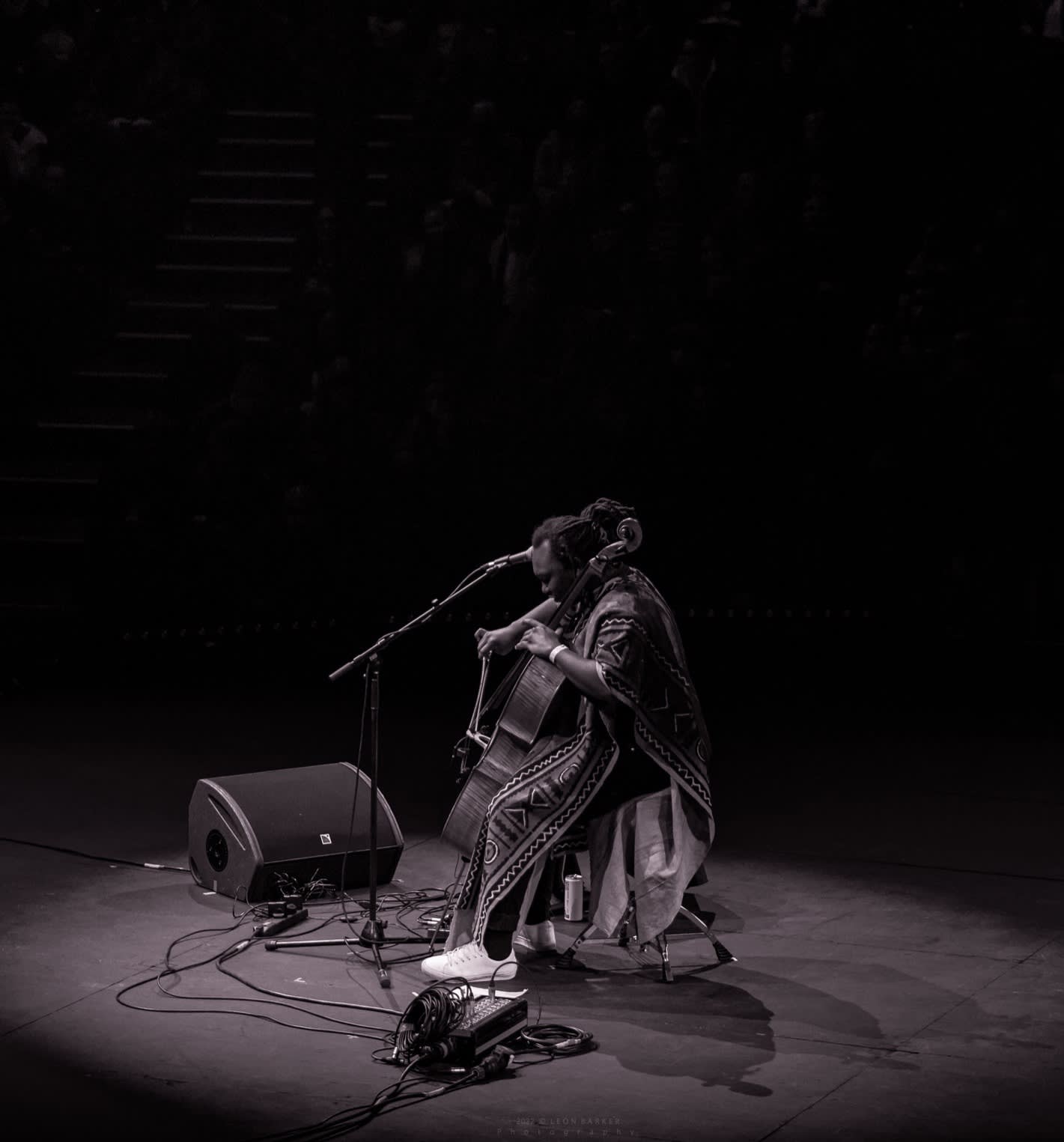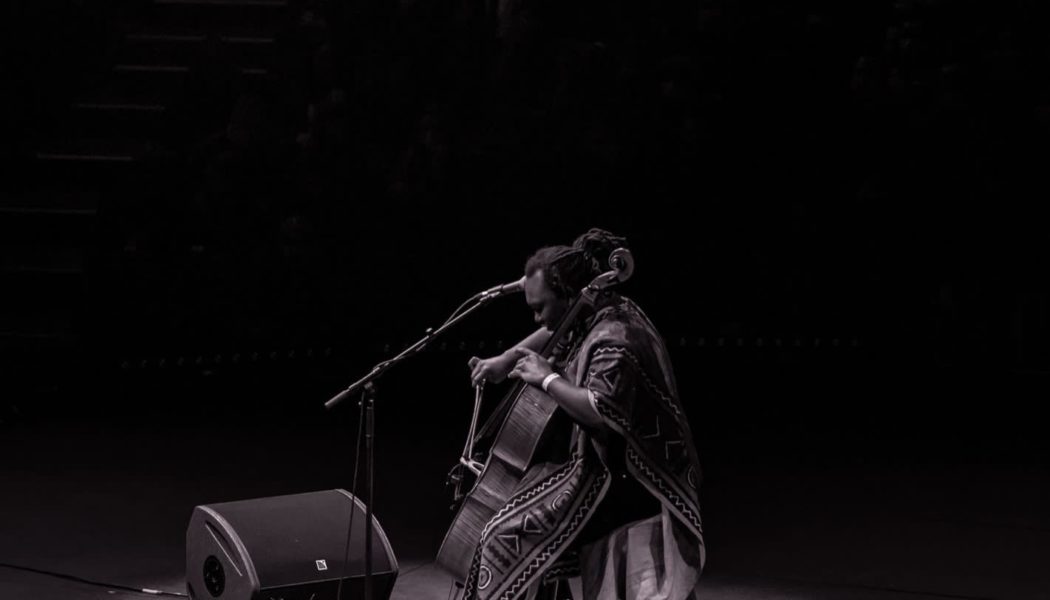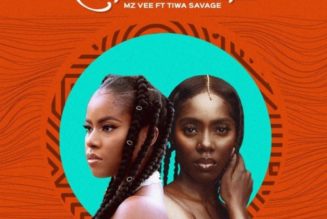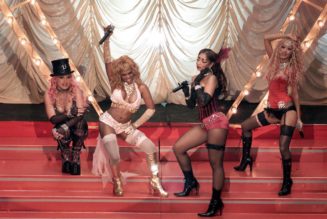When Abel Selaocoe left South Africa to study at Manchester’s Royal Northern College of Music, he was set on becoming a classical concert cellist. He did not expect to find himself broadening his musical knowledge of his homeland: “I had met South Africans, but not so many other sorts of Africans,” says the 31-year-old cellist, when he meets me, during a brief visit to London, in a plush recording studio. “In Manchester, I met west Africans, people from Sierra Leone playing instruments I had never seen.”
Now that he is an internationally renowned performer, Selaocoe has many musical homes. This month he will appear at the Barbican with the London Symphony Orchestra and conductor Duncan Ward as part of the London Jazz Festival. But he is equally comfortable performing at Womad festival or Wigmore Hall. In addition to playing the cello, he improvises, composes and sings, approaching Bach cello suites with the same conviction that he brings to his improvisations based on African rhythms and throat-singing techniques.
“What I love is being able to tell a good story,” he says. “[That includes] a lot of African and South African ways of telling stories but also discoveries I made along the way.”
In his upcoming Barbican appearance, Selaocoe will give the London premiere of his own cello concerto, “Four Spirits”: a showcase for his versatility. A homage to the community in which he was raised, it draws plenty from African tradition, such as its focus on communal singing. “We end up singing with everybody at the end,” he explains. “Not many concertos do that.”
It also contains huge gaps for improvisation, and there is an absurdism that Selaocoe partly attributes to the influence of the 20th-century Hungarian-Austrian composer György Ligeti: “The second movement of the piece, which is about children, is quite a bizarre sound world: questioning, laughing and suddenly crying, like a force of nature.” All of which appeals to a certain facet of Selaocoe’s personality: “[When I make music] I really enjoy being a child: just soaking things up and not worrying whether what I’m doing fits into a certain mould.”
The innocence of childhood seems to be a happy topic for Selaocoe, who, when I ask about his earliest memories, breaks into a wide grin. “I remember so much from my early years: playing with bricks and imagining they were cars; making things out of wire from fencing and clay from the riverbed next to our house.” Home, for him, was Sebokeng, a big township to the south of Johannesburg, where he grew up with three older siblings. His mother, Mary Selaocoe, did not live at home. Like many township mothers, she lived in the quarters of a well-off family, for whom she worked as a cleaner. His mechanic father, similarly, had his hands full with work. “My mother was very present in my life, but [on a day-to-day basis] most of the time it was just me and my siblings. I think there’s a whole generation of siblings who brought each other up in South Africa.”
It was through his community that he got his first taste of music-making. “There would be people with boom boxes outside, people playing jazz, people playing house music. And the church played a huge musical role too.” His brother Sammy — eight years older — played bassoon, and on Saturdays would take Abel to the African Cultural Organisation of South Africa, an outreach school in Soweto: “Sammy almost chose the cello for me.”

It turned out to be Selaocoe’s ticket out of the township. At 13, he won a scholarship to attend St John’s College, an elite boys’ boarding school in Johannesburg where, for a while, his world was turned upside down. “There were real rules in this place,” he recalls. “This new world of privilege was interesting but sometimes inhibiting.”
Musically, however, it provided him with a rigorous grounding in classical cello playing, so that “when it became apparent that the Mecca of classical music wasn’t [in Johannesburg]”, Selaocoe was more than equipped to apply for music conservatoires abroad.
Moving to England, says Selaocoe, and starting at the Royal Northern College of Music felt like being 13 years old all over again “in that familiarity of [plunging into] the unknown”. This time round, he had the musical confidence to go his own way: he began riffing on pillars of the western classical cello repertory in an African folk idiom — a skill he now regularly showcases in concert.
“The way I perform Bach, for example, when I add my singing voice into the mix [during improvisation], is the way my mother would have sung [Bach] back to me when she heard me practising,” he explains. “I used to think, ‘no, that’s not how it goes, Mum.’ But actually now I think it was pretty special because this was how she would receive the music: in an African way. And there is space [in classical music] for that kind of thing.”
In his determination to occupy that space, Selaocoe has become something akin to an actor. “Nowadays I can morph into different things on the cello. I can make the sound of a violin from Ethiopia and Eritrea that doesn’t have a fingerboard. I can go all the way down with my voice and start throat singing [in unison with] the lower range of my cello so that you can’t hear [the difference between] the cello or the voice.” He continues: “I can be a thousand different characters.”
It’s a talent that has garnered Selaocoe much praise from critics, who regularly comment on his mesmerising stage presence. Still, there are those who believe he relies too heavily on personal charisma at the cost of musical depth. When I put this to Selaocoe, I’m met with a rare frown: “It’s not my job to decide where the line is between the cello and the person.”
It’s clear that, for Selaocoe, maintaining a sense of community remains a priority — both in his personal life and his music-making: “there’s a bit of a trend [in society] at the moment of being alone.” He concludes: “so my aim is to give audiences the sense that they didn’t go to a concert by themselves, that it was something different from going to the cinema, and that they had some sort of shared experience.”
November 16, barbican.org.uk









